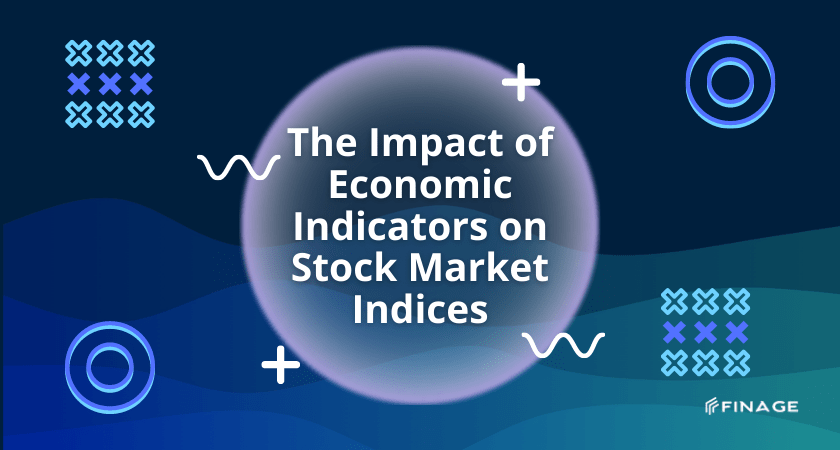The stock market is a complex and dynamic entity that is influenced by a myriad of factors, one of the most significant being economic indicators. These indicators play a crucial role in shaping investor sentiment, market trends, and trading decisions. In this comprehensive blog, we will delve into the intricate relationship between economic indicators and stock market trading, analyzing their impact and relevance in the ever-evolving financial landscape.
Economic indicators are statistical data points that provide insights into the overall health and performance of an economy. These indicators fall into several categories, including leading indicators, lagging indicators, and coincident indicators. Leading indicators, such as the consumer confidence index and building permits, offer valuable predictive insights into future economic trends. Lagging indicators, such as unemployment rates and corporate profits, reflect the aftermath of economic changes. Coincident indicators, such as industrial production and retail sales, move in tandem with the overall economic cycle.
The relationship between economic indicators and stock market trading is intricate and multi-faceted. Positive economic indicators often lead to an optimistic market sentiment, spurring investor confidence and driving stock prices higher. Conversely, negative economic indicators can trigger market volatility and downturns, leading to a decline in stock prices. Investors closely monitor economic indicators to gauge the direction of the economy and make informed decisions regarding their investment portfolios.
One of the most closely watched economic indicators is the Gross Domestic Product (GDP), which measures the total value of goods and services produced within a country. A robust GDP growth often translates to favorable market conditions, signaling a healthy economy and boosting investor confidence. In contrast, a sluggish GDP growth or contraction can dampen market sentiment and lead to heightened uncertainty among investors.
Another critical economic indicator is the Consumer Price Index (CPI), which measures changes in the prices of consumer goods and services. Inflationary pressures indicated by the CPI can have a significant impact on stock market trading. High inflation rates can erode the purchasing power of consumers and lead to higher production costs for companies, potentially impacting corporate earnings and stock prices.
Unemployment data also plays a pivotal role in stock market trading. A low unemployment rate often signals a strong labor market and increased consumer spending, fostering positive market dynamics. Conversely, rising unemployment rates can indicate economic strain, leading to investor apprehension and market downturns.
In addition to these key indicators, other factors such as interest rates, manufacturing data, and international trade balances also exert influence on stock market trading. The Federal Reserve’s monetary policy decisions, for instance, can significantly impact stock prices, as changes in interest rates ripple through various sectors of the economy.
Understanding the impact of economic indicators on stock market trading is essential for investors seeking to navigate the complexities of the financial markets. By staying informed about relevant economic data and its implications, investors can make well-informed decisions to optimize their investment strategies and mitigate risks.
In conclusion, economic indicators serve as vital barometers of economic health and are instrumental in shaping stock market trading dynamics. Investors should remain vigilant in monitoring these indicators and interpreting their impact on the financial markets. The symbiotic relationship between economic indicators and stock market trading underscores the need for a comprehensive understanding of these factors to navigate the intricate landscape of investment decisions.
Stay tuned for more insightful content on the interplay between economics and financial markets, as we continue to explore the ever-evolving dynamics that drive stock market trading.











